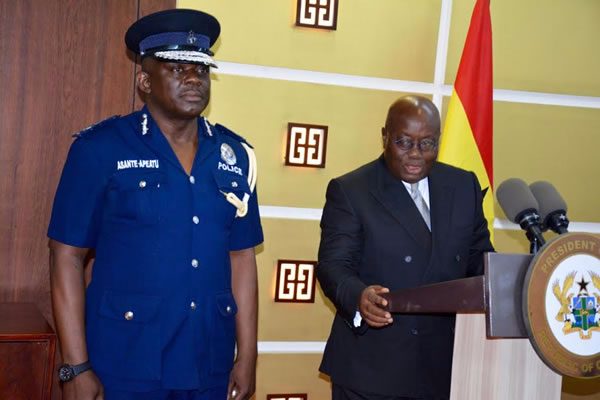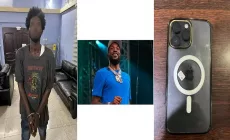The ranking by the World Internal Security and Police Index (WISPI) captured 28 African countries in the survey.
It was released by two bodies, the International Police Science Association (IPSA) and the Institute for Economics and Peace (IEP).
Seven African countries performed better than Ghana.
However, Ghana also performed better than 20 other African countries captured in the index.
The index ranked Botswana as best in Africa and 47th best in the world, followed by Rwandan police as Africa’s second best, with a global position of 50th.
The third best in Africa is Algeria, with global position of 58, followed by Senegal as Africa’s fourth best police force and a global ranking of 68.
Tunisia ranked 72nd best in the world, which makes that country the fifth best police force in Africa.
The World Internal Security and Police Index ranked Egypt as the 78th best in the world, placing it at sixth position in Africa, followed by Burkina Faso at a global position of 85 to place seventh in Africa.
Ghana ranked the eighth best in Africa and 87th best in the global position, followed by South Africa as ninth best in Africa, with 91st position in the world, while Mali placed 10th in Africa and 92nd globally.
Other African countries captured in the index includes Mali, Sudan, Malawi, Burundi, Liberia, Guinea, Cote d’Ivoire, Tanzania, Madagascar, Zambia, Ethiopia, Sierra Leone, Cameroun, Mozambique, Uganda, Kenya, Democratic Republic of Congo (DRC) and Nigeria.
UN police-population ratio
Ghana remained far from achieving the United Nations (UN) policing standard of one police personnel to 500 people.
Ghana has 33,063 police personnel
The total number of police personnel in Ghana currently stands at 33,063.
Police-population ratio is one police officer to 816 Ghanaian
When Ghana’s population of 27 million people is divided by 33,063 police personnel, it translates into one police personnel to 816 Ghanaians.
Despite the failure of Africa to break into the top 40, the continent was very prominent in the lower rankings.
6 African countries at the bottom
Six African countries were in the bottom 10. Cameroon and Mozambique were in the 120th and 122nd spots respectively.
Uganda, Kenya, the Democratic Republic of Congo (DRC) and Nigeria made it an African quartet at the bottom – occupying 124th to 127 slots respectively.
Best 10 countries
At the top of the global rankings, Europe dominated with eight countries. Except first-place Singapore and Australia in sixth spot, all the other countries were in Europe – Finland, Denmark, Austria, Germany (2nd – 5th), Netherlands, Norway, Sweden and Switzerland (7th – 10th).
“WISPI measures the ability of the police and other security providers to address internal security issues in 127 countries, across four domains, using 16 indicators,” the report stated. The four domains are capacity, process, legitimacy and outcomes.
It examines how these domains relate to each other and finally to track trends in these domains over time to inform the work of security-providing agencies, researchers, and practitioners in the field of peace and conflict studies, criminology, and police studies
For the purposes of the Index, ‘security apparatus’ predominantly refers to the police, although a number of indicators also touch upon the ability of the military, the judicial system, and the private sector to address internal security issues.
This means that a country that currently does not have many internal security issues, or relies upon tacit rather than explicit enforcement, may have a worse rank than a country that has more issues but has also devoted more police resources to keeping them contained.
Countries with smaller populations performed better
According to the report, countries with smaller populations performed better on the Index than larger ones.
Only one country in the top 10 had a population greater than 25 million, and conversely only one country in the bottom 10 had a population of less than 25 million.
Bribe payments
The report noted that corruption has been increasing around the globe in the last 20 years.
In many countries, bribe payments to the police are still commonplace.
The Index average for bribe payments to police was 30 per cent, with more than 50 per cent of respondents admitting to having paid a bribe to police in 33 of the 127 countries in the Index.
Ghana Police ranked 8th best in Africa
- Posted on
- Comment

The Ghana Police Service has been ranked the eighth best in Africa and 87th best among 127 countries around the world.
By Elvis DARKO, Accra










 (Selorm) |
(Selorm) |  (Nana Kwesi)
(Nana Kwesi)